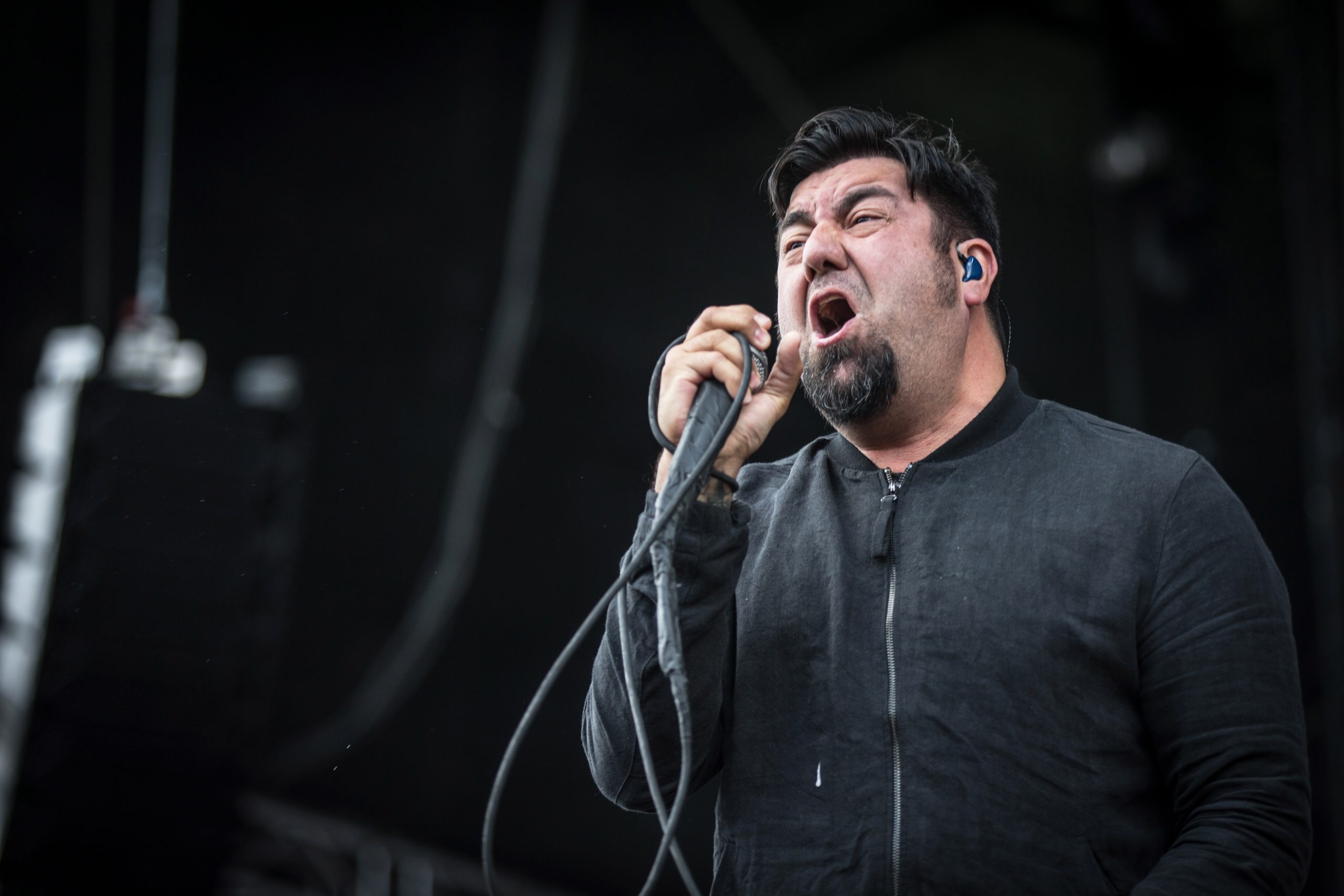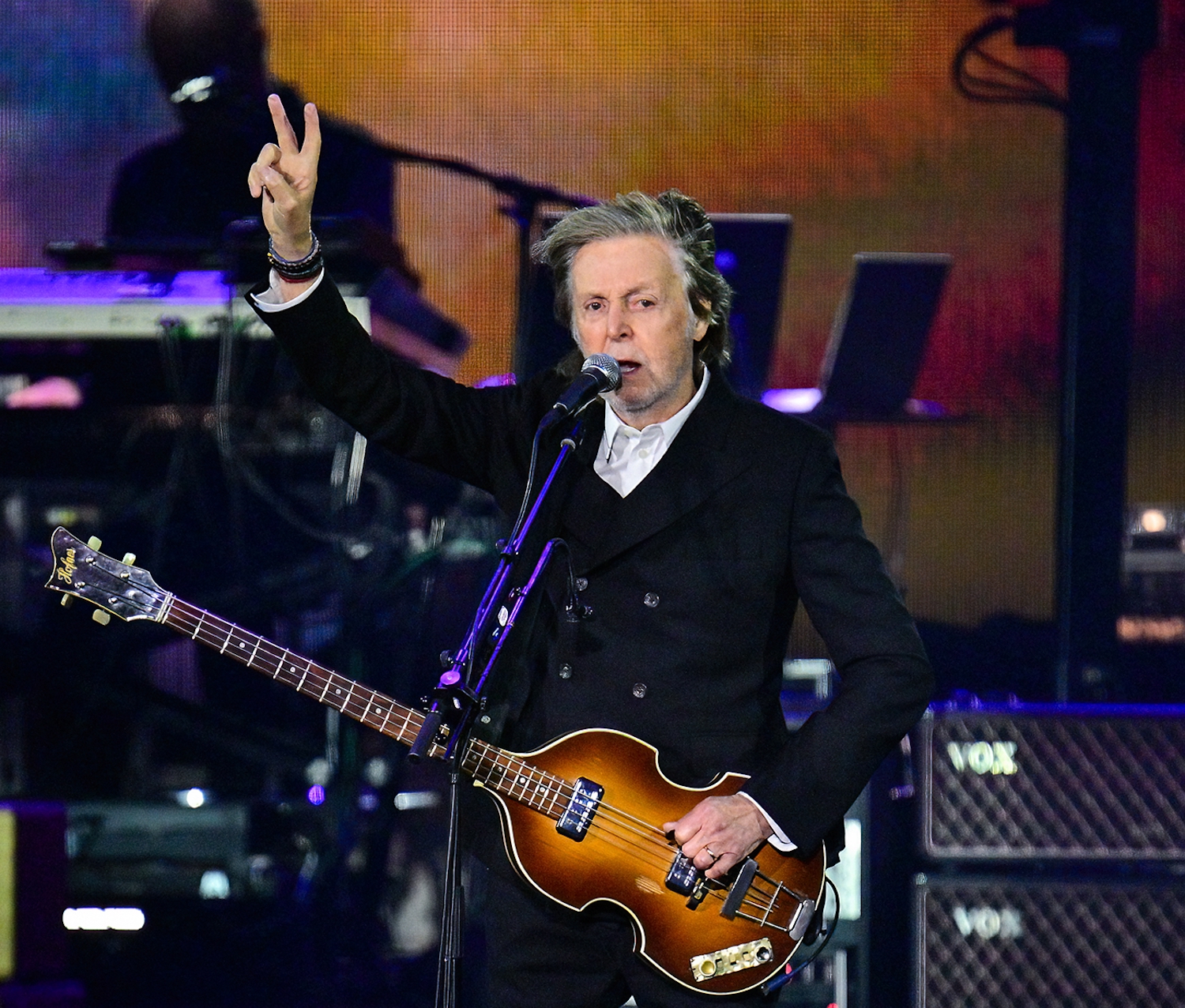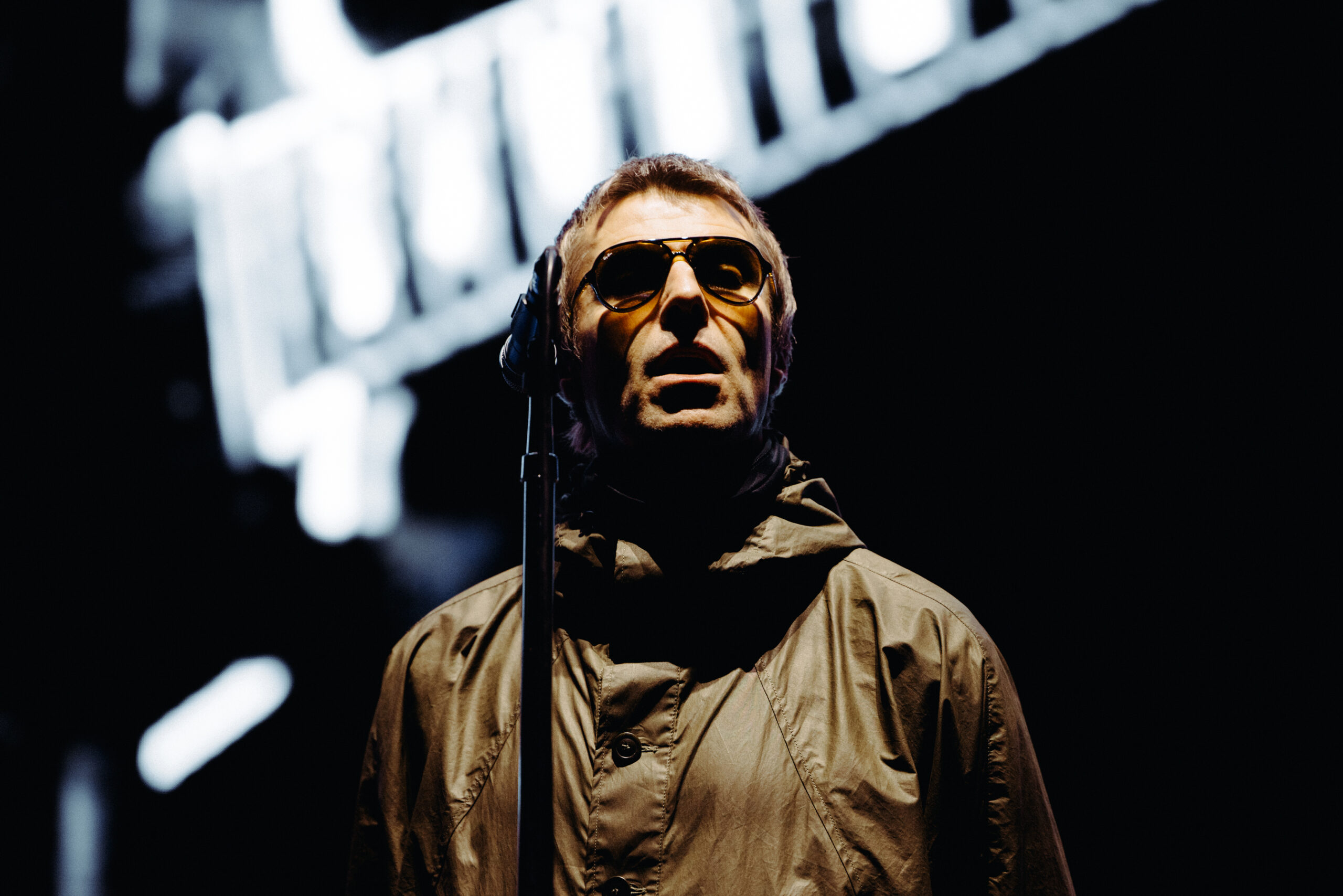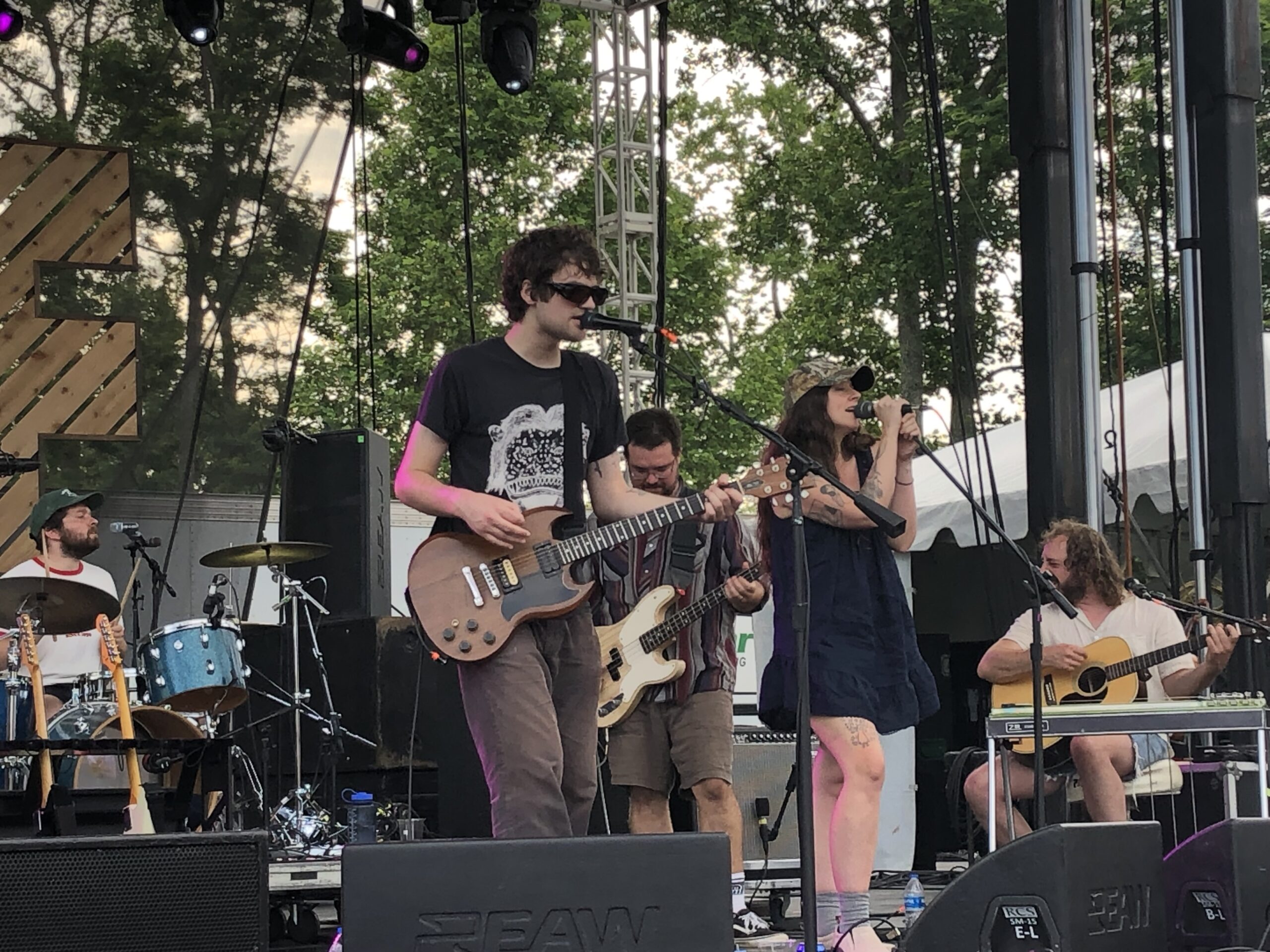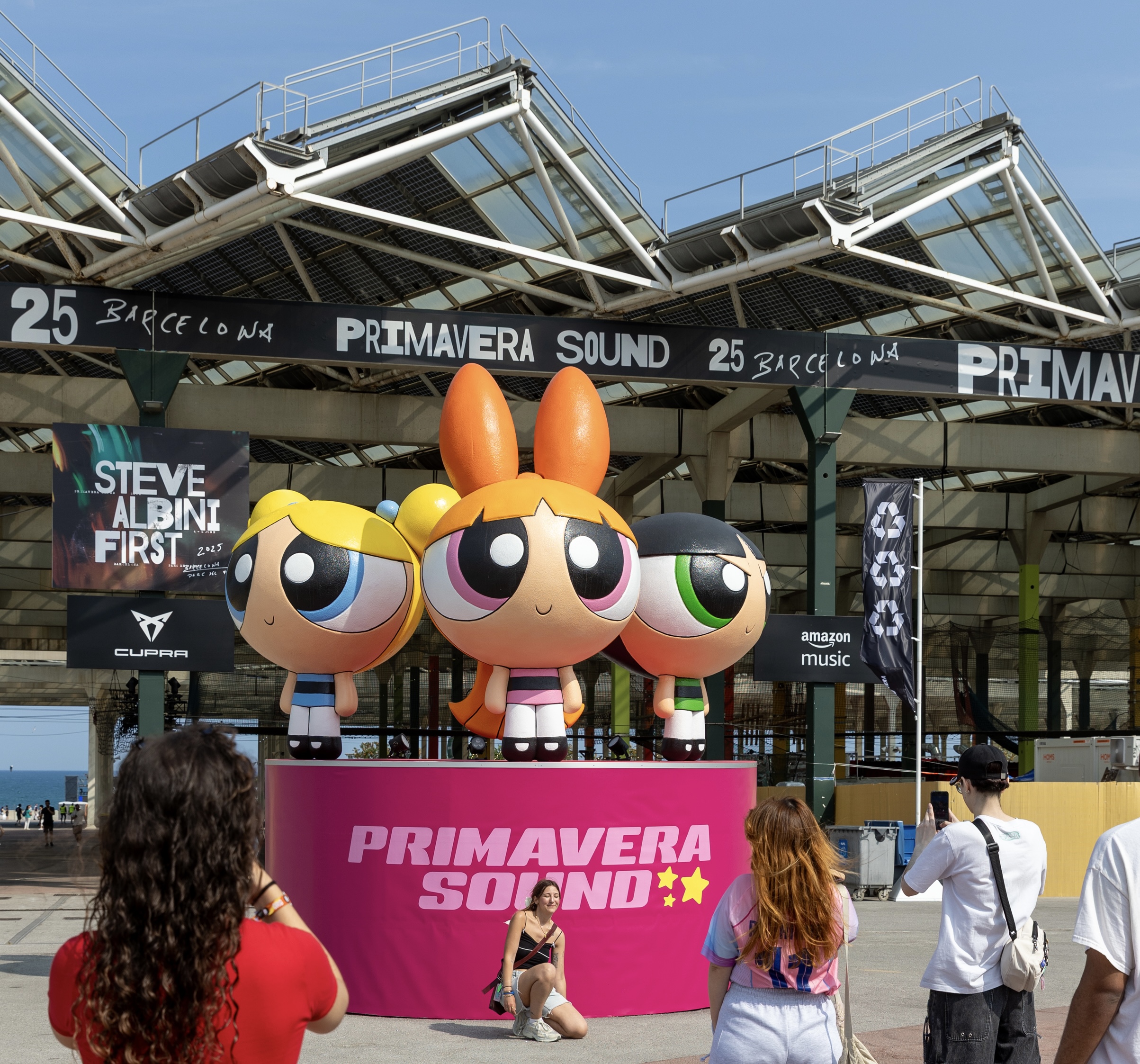When I ask people what they think about San Diego, I mostly find out that they don’t. Unlike Los Angeles and the Bay Area, there’s no pervasive industrial complex that defines its economy, mandates an influx of new residents, or warrants the skyrocketing rent, just unyieldingly perfect weather -- gotta factor in that no one really needs to pay for central air or heating. On a national level, San Diego was home to the two most nondescript franchises in the four major sports, and one of them now plays in Los Angeles; I’d estimate the crowd at your average Chargers game is 75% for the away team.
Aside from a bizarre period in the early '90s when bands with Spock haircuts and V-necks were getting looks from major labels and a blip in the late 2000s with bloggy garage rock, San Diego has been an afterthought in pop -- you’ve got Stone Temple Pilots and Blink-182, and most people seem to assume that Sublime is either from here or that Sublime cover bands still do brisk business. When I talked to a guy in a popular indie rock band after a recent show, he said that they got burritos and went to the beach and had the full San Diego experience. You know, because what else is there?
All of which to say that while Deftones aren’t actually from San Diego -- they’re eight hours up north in Sacramento -- San Diego is a very Deftones town, one often seen by outsiders as a culture-free domain of skate bros in board shorts, Hollister, and flat-brimmed fitted hats. I mean, there’s definitely that, but spend more than an hour exploring past the initial stereotype, and it’s a fun, vibrant, active, diverse, and very accessible city without LA’s pretension and is a half hour away from Mexico. I found out it was apparently once called out for having the worst food city in America in an article about the most underrated food cities in America. It makes perfect sense as the home of the first Día De Los Deftones, and presumably, not the last.
While Coachella, Lollapalooza, Rolling Loud, and Riot Fest are likely to stand the test of time, it’s clear that the festivals that explicitly try to emulate that model of big-name headliners and a grab bag of, say, Mac DeMarco, Run The Jewels, and Phantogram, are responsible for the bursting bubble. The artist-curated model is just as precarious -- Hundred Waters’ FORM Arcosanti has proven to be resilient, but what about Orion Festival? Metallica, the single most popular metal band of all time, curated a weekend with Red Hot Chili Peppers, Rise Against, Dropkick Murphys, Japandroids, Bassnectar, Death Grips, Foals, and Deftones themselves on the lineup and lost millions. Meanwhile, how many times can Bon Iver's Eaux Claire book variations of the National and Sharon Van Etten?
Día De Los Deftones tickets were $75 before service charges -- most fans would pay that just to see Deftones alone. But are they popular enough to anchor a new festival in a city that’s not their own, especially when they co-headlined their last show in San Diego with Rise Against? Their albums regularly debut in the top five, but their most streamed songs on Spotify still lag behind those of, say, Puddle Of Mudd. But amongst the appreciably large crowd, I’d hear things like, “This is the 26th time I’ve seen Deftones,” and see couples with matching tattoos of the White Pony cover. I don’t think “She Hates Me” and “Blurry” warranted that kind of brand loyalty.
Besides, few bands at Deftones’ level can move amongst variants of ticket-buying rock diehards. They can play the big metal and radio rock festivals with names like Monster Energy Aftershock, a hometown affair a few weeks back where they outdrew warhorses like Alice In Chains, Incubus, and Godsmack. Judging from the T-shirts I saw in the Día De Los Deftones crowd -- healthy doses of Tool, Mastodon, and Between The Buried And Me - the event wasn’t catering to the indie crowd. Yet, Deftones still mandate an increasing amount of credibility in that realm, and look at their 2011 Covers album -- with the inclusions of years-old Sade, the Smiths, Duran Duran, the Cure, and Depeche Mode songs, they are essentially a rock band created in the image of Pitchfork’s revised 1980s Album List over a decade in advance. If money was no object to Deftones, and bands felt reflexively honored for inclusion, think about the luminaries from metal, shoegaze, indie rock, and rap they could pull and still have it honor the Deftones-ness of it all.
Maybe that’s the goal for next year. For 2018, Deftones appealed more to the Adrenaline fan than the “Y’know, White Pony was the real New Rock Revolution” indie kid. Their set drew heavily and surprisingly from their debut, the last time they could legitimately be called rap-metal. And the lineup itself appealed to the modern-day skate kid who hasn’t really discovered indie rock yet.
No complaints here. Vein and Ho99o9 don’t sound much like anything Deftones have done recently, but they’re going through the “are they or aren’t they nu-metal” talk that’s dogged the hosts for the past two decades. Vein, though -- I’ve only heard a higher-pitched snare on 311 albums, the guitarist plays an Ibanez, and the singer screams stuff like “WE ARE VEIN FROM MASSACHUSETTS, MAKE SOME FUCKING NOISE SAN DIEGO” without any irony whatsoever. The first song on Vein’s completely batshit debut Errorzone has the “Amen” breakbeat within the first minute and the first time I heard it, I couldn’t remember if Slipknot did it first. They are definitely nu-metal. They also sound like Epitaph and Roadrunner getting into a bidding war and totally fucking rule. Code Orange has opened a wide lane for bands like this to become super popular under the radar before they somehow end up getting nominated for a Grammy or doing a WWE theme.
Same goes for Ho99o9: The typography accurately predicts they’re a band that stands out on Reddit boards and Twitter, the inevitable collision of Bad Brains and Bone Thugs, maybe Death Grips for people who think Death Grips are a little too artsy-fartsy. One of them wore a yellow racing suit, another had bespoke military fatigues, and the drummer wore basically nothing -- he’s the guy who plays with Black Flag and is probably 30 years younger than any of the other Black Flag members. Judging from the lyrics I could pick out, maybe 85% of Ho99o9’s songs are about punching cops. I’m open to the possibility that if I subjected any of these songs to critical scrutiny, they might be laughably awful. But once again, as someone who mostly attends fairly gentrified festivals like FYF and Coachella that are shifting towards rap, pop and electronic music, why wouldn’t you want this kind of energy at 4:30PM instead of, like, Phosphorescent?
https://twitter.com/tonyakay/status/1058969693543776256?ref_src=twsrc%5Etfw
In this type of environment, you get a few dozen people in Nails T-shirts doing Iroquois twists and circle-pitting themselves arms akimbo and enough dudes at the front who can scream the words. There’s a far more sizable number of curious onlookers who stand much further back, lest their slice of Spicy Pie gets knocked out of their hands. Obviously, this isn’t the optimum setting for seeing Vein or Ho99o9 -- the smaller and sweatier the venue, the better. Vein and Ho99o9 freaked the fuck out while the most pristine 7-Eleven I’ve ever seen served as the backdrop and yet, it was fitting - this is the kind of music I would listen to if I were still spending my free time loitering in front of a 7-Eleven.
I can’t quite describe the disruptive emotional flux one achieves going from Vein to Ho99o9 with Rocket From The Crypt in between. One would think that if Deftones were trying to honor a hometown hero, we’d get Drive Like Jehu. They’ve covered “Caress” and I’ve been at several Deftones shows where “Do You Compute” played between sets. But Rocket From the Crypt is more in the spirit of Día De Los Deftones - campier, cornier, and a lot more fun.
One of the first things I was told upon moving to San Diego is that there isn’t a lot of support for current music, but “people still flip out about the ‘90s.” Rocket From The Crypt could not be more ’90s -- Interscope wanted so badly to sign Drive Like Jehu that they made John Reis’ side project a part of the deal. Major labels really wanted to give bands like this a lot of money! But whereas Jehu trafficked in caustic, expansive post-hardcore that could presumably bridge the gap between Nirvana and emo, Rocket From The Crypt were somewhat of a novelty band that couldn’t have existed at any other time. They infamously promised anyone with a Rocket From The Crypt tattoo free admission to any show of theirs in perpetuity -- Kennedy once flashed hers on MTV. Plus, the matching black wool guayaberas, the space-race stage names, the horns, all of it drew from the kind of ‘50s and ‘60s kitsch that came back heavy in the ‘90s and manifested in things like Swingers, Urge Overkill, and Fun Lovin’ Criminals.
“Born in ‘69” is a statement of fact, not one of their many cheeky, tiki lounge jokes. And yet, while Reis is six years older than Chino Moreno and their bands sound like they came from completely different decades, RFTC look far younger than Deftones. Deep tans, bright teeth, slick haircuts, jokes about baseball -- they’re the stereotypical Ocean Beach dads (comment from the “On A Rope” video - “how many John Stamos’ can you fit in one band?”). Hard to believe a band this crowd-pleasing once put out a 20-song live album that didn’t include their closest thing to a monster hit. Befitting the jovial occasion, we definitely got “On A Rope.”
However, the rap element of Día De Los Deftones was as awkwardly integrated as rap in Deftones’ own music. The fairly equal gender split of the crowd itself didn’t really reflect the lineup’s complete lean towards variants of aggro dudes to whom Doja Cat has nothing in common -- a fun and flippant female rapper wearing lingerie and a wedding veil on stage. Despite the majority having little awareness of her actual debut album Amala, to everyone’s credit, no one was yelling at her to do “Moooo.” “I don’t know what type of festival this is,” she joked from the stage. “But if you don’t fuck with me and you’re just trying to look at my ass cheeks, make some noise!”
https://youtube.com/watch?v=jfj-YWAp-YM
There’s probably a sizable overlap between people who defend Deftones and Linkin Park to their more highbrow friends, so the inclusion of a guy like Mike Shinoda is warranted. That said, I imagine the songs I didn’t immediately recognize as Fort Minor and Linkin Park were from his most recent solo album, and they are painful to behold; he quotes KRS-One and Public Enemy with the earnestness of a backpack rapper or a high school guidance counselor. Yet, this all somehow felt more attuned to the occasion than Future, the only guy there who might move tickets on his own. Whereas Shinoda is try-hard incarnate, Future could barely be heard over his pre-recorded backing tracks and I don’t think he acknowledged Deftones or the festival itself once. I doubt Future stuck around to get a burrito or go to the beach.
But getting an artist at Future’s level sets a good precedent, especially since there’s no guarantee that Deftones will have a new record by the presumptive second annual Día De Los Deftones; notably, they played no songs from their most recent album, 2016’s internally contentious Gore. They also played a total of one song from their “Chino XL” days of Deftones and Saturday Night Wrist, where they got deep into drugs and debt and basically couldn’t stand each other. “I hate all my friends/ They all lack taste sometimes” -- this was a lyric on a single.
View this post on InstagramA post shared by Photo & Personal | Herman G. (@hermanito_0) on
None of that animus existed anywhere on the premises of Petco Park, particularly on stage. After 30 years (!) and countless near-breakups, Deftones can still convincingly play the teens that met up in a Sacramento garage. Deftones lost their bassist and dear friend Chi Cheng in a fatal motor vehicle accident, and when you see how far out of their way they’ve gone to musically integrate his replacement, Sergio Vega, it’s like they watched Some Kind Of Monster just to do the exact opposite of what Metallica did to Jason Newsted. Guitarist Stephen Carpenter is generally seen as the stubborn, surly contrast to Moreno, and he wore catrina makeup along with his usual camo cargo shorts.
One thing to also consider going forward: Deftones are enormously important in the Mexican and greater Latinx community. This crowd was noticeably more diverse than I’ve seen at festivals even in Southern California. The amenities were meant to reflect the location and could stand to level up a bit -- there were a couple of solid taco shops, a paletas pop-up, face painting and “Lowrider Alley,” but also $15 micheladas. But the Día De Los Deftones appellation wasn’t meant as a clever “Rocktoberfest”-style tie-in. “I only recently begun to learn how to celebrate this day,” Shinoda announced before he played “In The End” as a solo piano piece while the crowd carried Chester’s parts. It was a reminder of what this day actually was meant to celebrate. Likewise, Moreno honored Día De Los Muertos by dedicating “Minerva” to Cheng and was so overcome by grief he could barely sing the chorus. But it was still a party -- minutes later, he took a big chug of Deftones' collaboration with Belching Beaver Beer and spit it into the air.
